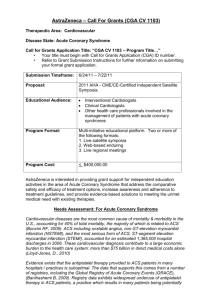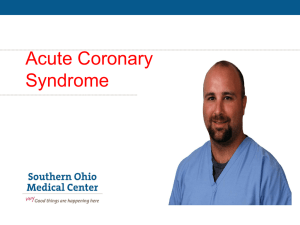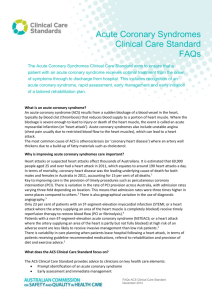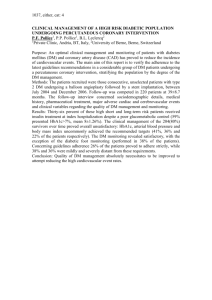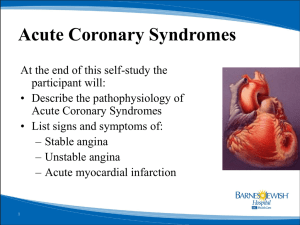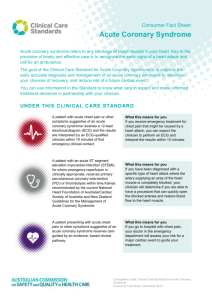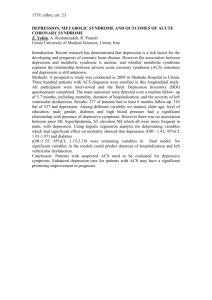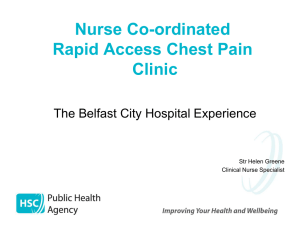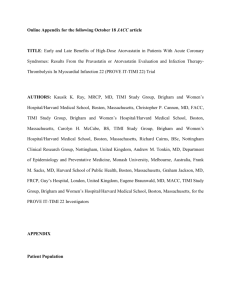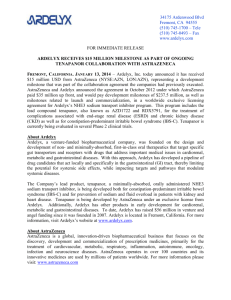Acute Coronary Syndrome – Local / Regional Programs
advertisement
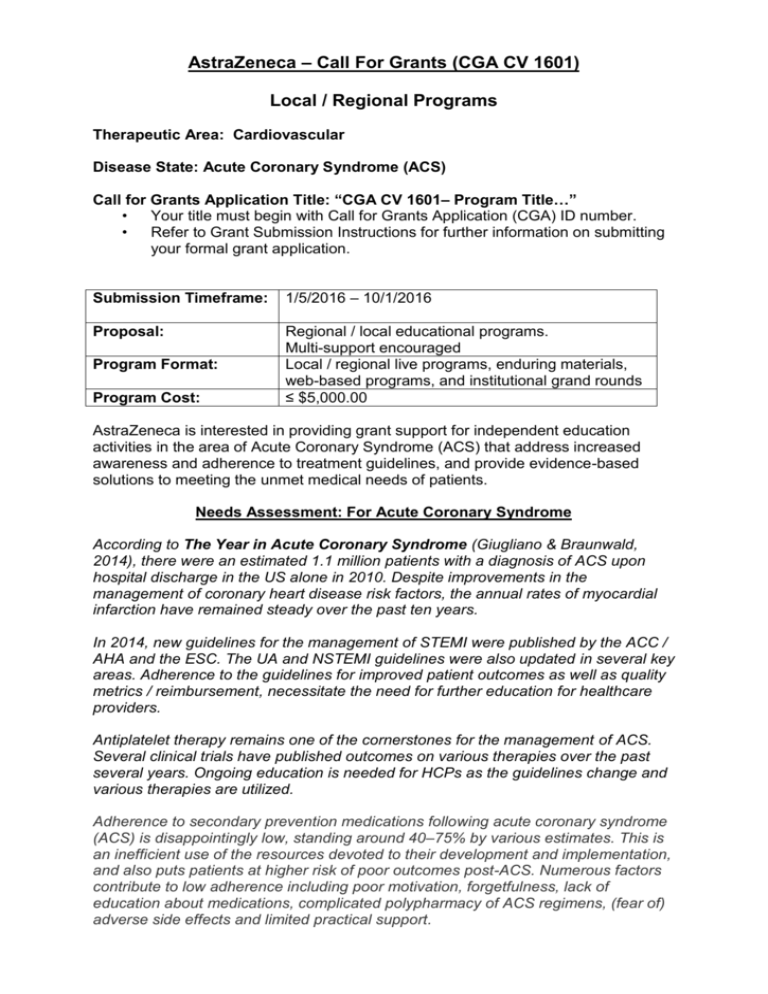
AstraZeneca – Call For Grants (CGA CV 1601) Local / Regional Programs Therapeutic Area: Cardiovascular Disease State: Acute Coronary Syndrome (ACS) Call for Grants Application Title: “CGA CV 1601– Program Title…” • Your title must begin with Call for Grants Application (CGA) ID number. • Refer to Grant Submission Instructions for further information on submitting your formal grant application. Submission Timeframe: 1/5/2016 – 10/1/2016 Proposal: Regional / local educational programs. Multi-support encouraged Local / regional live programs, enduring materials, web-based programs, and institutional grand rounds ≤ $5,000.00 Program Format: Program Cost: AstraZeneca is interested in providing grant support for independent education activities in the area of Acute Coronary Syndrome (ACS) that address increased awareness and adherence to treatment guidelines, and provide evidence-based solutions to meeting the unmet medical needs of patients. Needs Assessment: For Acute Coronary Syndrome According to The Year in Acute Coronary Syndrome (Giugliano & Braunwald, 2014), there were an estimated 1.1 million patients with a diagnosis of ACS upon hospital discharge in the US alone in 2010. Despite improvements in the management of coronary heart disease risk factors, the annual rates of myocardial infarction have remained steady over the past ten years. In 2014, new guidelines for the management of STEMI were published by the ACC / AHA and the ESC. The UA and NSTEMI guidelines were also updated in several key areas. Adherence to the guidelines for improved patient outcomes as well as quality metrics / reimbursement, necessitate the need for further education for healthcare providers. Antiplatelet therapy remains one of the cornerstones for the management of ACS. Several clinical trials have published outcomes on various therapies over the past several years. Ongoing education is needed for HCPs as the guidelines change and various therapies are utilized. Adherence to secondary prevention medications following acute coronary syndrome (ACS) is disappointingly low, standing around 40–75% by various estimates. This is an inefficient use of the resources devoted to their development and implementation, and also puts patients at higher risk of poor outcomes post-ACS. Numerous factors contribute to low adherence including poor motivation, forgetfulness, lack of education about medications, complicated polypharmacy of ACS regimens, (fear of) adverse side effects and limited practical support. References: Cheng, K., Ingram, N., Keenan, J., & Choudhury, R. Evidence of poor adherence to secondary prevention after ACS: Possible remedies through the application of new technologies. Open Heart 2015;2:doi-10.1136/openhrt-2014-000166. Giugliano RP, Braunwald E. The Year in Acute Coronary Syndrome. J Am Coll Cardiol 2014; 63:201-214 Libby P. Mechanisms of Acute coronary Syndromes and their Implications for therapy. N Engl J Med 2013; 368:2004-13 O’Gara PT. Kushner FG, Ascheim DD, et al. 2013 ACCF/AHA Guideline for the Management of Acute Myocardial Infarction in Patients Presenting with STsegment elevation. Eur Heart J 2012; 33:2569-619. Program Requirements: The Program must be accredited and fully compliant with the criteria and/or standards of commercial support for ACCME, AAFP, AOA, ACPE, ANCC, AANP, or NCCPA. Furthermore, the program will be educational and non-promotional in nature and will be planned, designed and implemented in accordance with the U.S. Food and Drug Administration’s Guidance on Industry-Supported Scientific and Educational Activities ("Policy Statement"). The Policy Statement and the ACCME Standards require, among other things, that (i) Institution conduct the Program independently and without control or influence by AstraZeneca over the Program's planning, content (including the selection of speakers or moderators), or execution; (ii) the Program be free of commercial bias for or against any product; (iii) Institution make meaningful disclosure of AstraZeneca support of the Program and any prior relationship between Institution and AstraZeneca, and the relationship, if any, between AstraZeneca and the speakers selected by Institution; and (iv) AstraZeneca not engage in, and Institution not permit any other sponsor to engage in, promotional activities in or near the Program room or advertise its products in any materials disseminated as part of the Program. In addition, Institution is required by the Policy Statement and the ACCME Standards to ensure that any product discussions at the Program be accurate, objective, balanced and scientifically rigorous. This includes a balanced discussion of each product and of treatment alternatives, that limitations on data be disclosed, that unapproved uses be identified as such, and that for live presentations there be opportunities for questioning or debate. REMINDER - Submission Instructions: Call for Grants Application Title: “CGA CV 1601– Program Title…” Submission Instructions: • Your title must begin with Call for Grants Application (CGA) ID number. • Refer to Grant Submission Instructions for further information on submitting your formal grant application.
